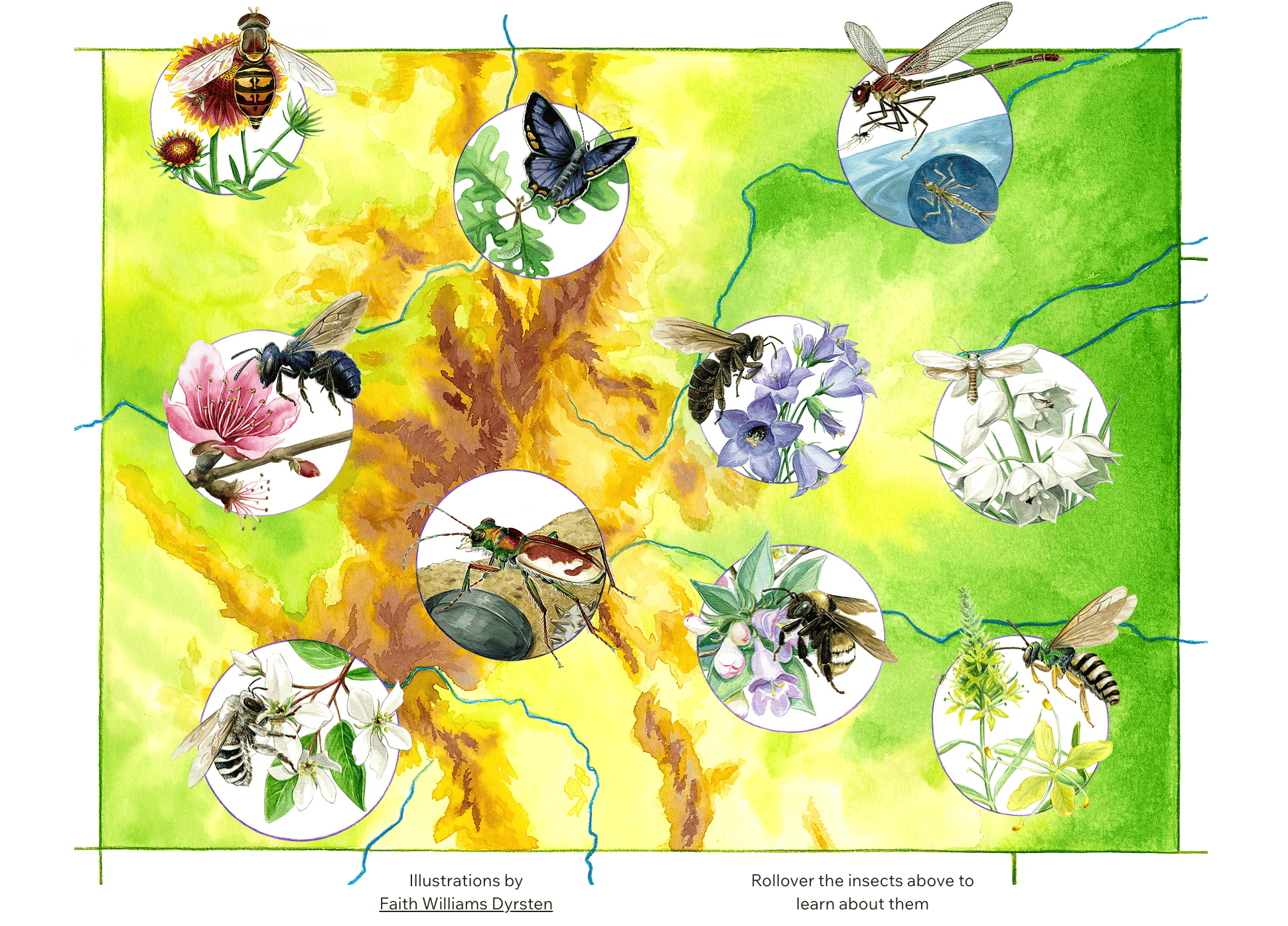To support native pollinators, skip the herbicides.
Herbicides may be killing some invasive species that threaten the plants native pollinators need, but they are also definitely killing the pollinators themselves. We need to invest more in non-chemical invasive species management techniques that don’t kill the threatened populations that we’re trying to protect.
In response to Senate Bill 22-199, the Colorado Department of Natural Resources commissioned a study on native pollinating insects. This collaborative study was conducted by Colorado State University Extension, the Xerces Society for Invertebrate Conservation, and the University of Colorado Museum of Natural History, in consultation with state and federal agencies, researchers, scientists, and land managers across the state.
The Colorado Native Pollinating Insects Health Study outlines how Colorado is home to a rich community of native insects whose pollinating services are at the heart of healthy environments and economies, but concludes that overall, the status of Colorado’s native pollinating insects is tenuous, with the primary drivers of decline being habitat loss, inadequate land-management practices, pesticides, competition from non-native species, and climate change, among others
The study states that promoting policies which benefit native pollinating insects represents the biggest opportunity to foster healthy and sustainable pollinator populations, especially in agricultural and urban habitats and identified the five highest areas of immediate action and priorities:
Priority 1: Protect imperiled native pollinating insects
Priority 2: Protect, restore, and connect pollinator habitats
Priority 3: Mitigate environmental changes that negatively impact pollinators and their habitats
Priority 4: Reduce the risks from pesticides to pollinating insects
Priority 5: Monitor and support native and managed pollinator health
Explore the Study
People and Pollinators Action Network has created an interactive webpage through which you can explore the study’s highlights.

